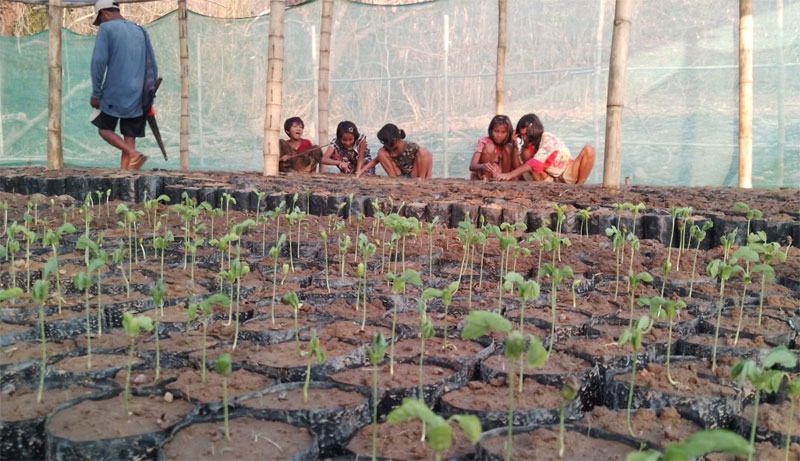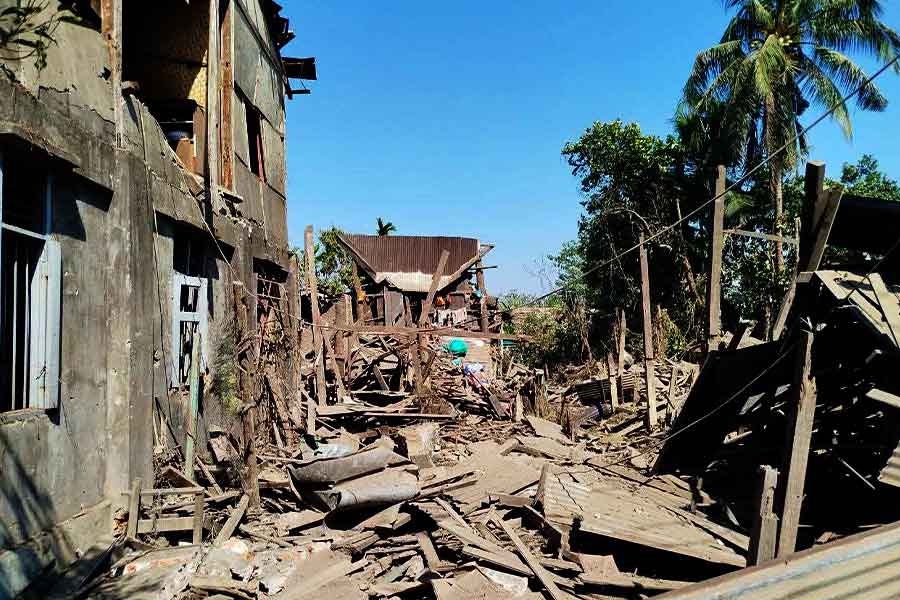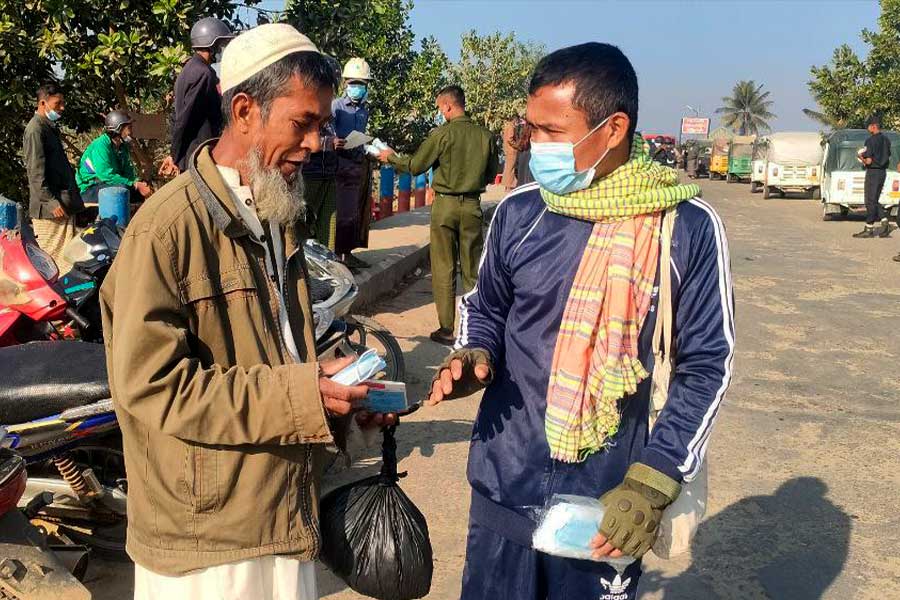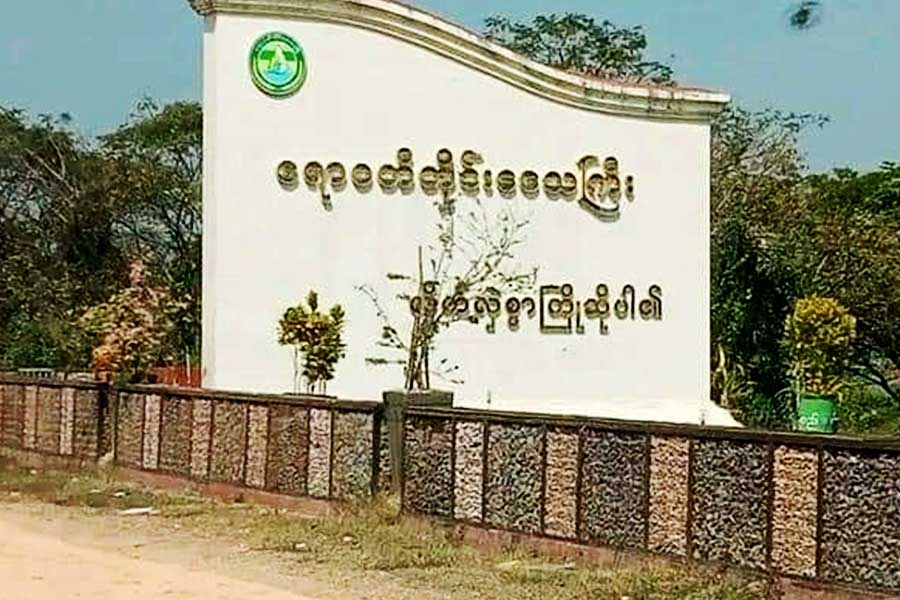Environmentalists to grow trees to fight climate change in Arakan State
Locals are participating in environmental protection activities, but on the other hand, due to illegal logging, the forests are slowly being destroyed.
10 May 2023

DMG Newsroom
10 May 2023, Sittwe
Environmental conservationists are working to plant trees on a self-reliant basis to combat climate change, which is a secondary effect of the destruction of forests and mangroves in Arakan State as elsewhere globally.
Trees are being planted in Arakan State’s Gwa, Thandwe, Ann, Kyaukphyu and Ramree, Sittwe, Ponnagyun, Kyauktaw and Mrauk-U townships on a self-reliant basis, according to environmental conservationists.
More than 40,000 saplings were planted in Gwa Township last year and 50,000 saplings will be grown this year’s rainy season, said Dr. Khin Maung Kyi, an environmental conservationist.
“Every village in Gwa Township established its own nursery to plant saplings,” he added.
Perennial trees such as fry wood, plum mango trees and jack trees and mangroves have been planted in Gwa Township in order to protect the environment from the hot weather.
Around 30,000 acres of forest and 7,000 acres of mangroves have been preserved within Gwa Township, according to an environmentalist.
About 30,000 acres of forest related to mangroves were preserved in Ann Township between 2018 and 2022, and more than 400,000 perennial trees were planted in that area.
“We have established a 200-acre community forest plantation on Thabyuchaing Island in Ann Township. More than 8,000 perennial trees will be planted on the community forest plantation during the rainy season,” said Ko Myo Lwin, an environmental activist and resident of Ann town.
Locals are participating in environmental protection activities, but on the other hand, due to illegal logging, the forests are slowly being destroyed.
According to the Environmental Conservation Department’s figures, Arakan State had over 60 percent forest coverage in previous years, but now only 20 percent of the forest coverage remains.
Previously, the average summer temperature in Arakan State was 34 degrees Celsius, but this year the maximum temperature reached 40 degrees Celsius, according to the Department of Meteorology and Hydrology.
DMG phoned U Aye Min Hlaing, deputy director of Arakan State’s Forest Department, to find out what is being done about forest conservation, but he could not be reached.
















.jpg)
